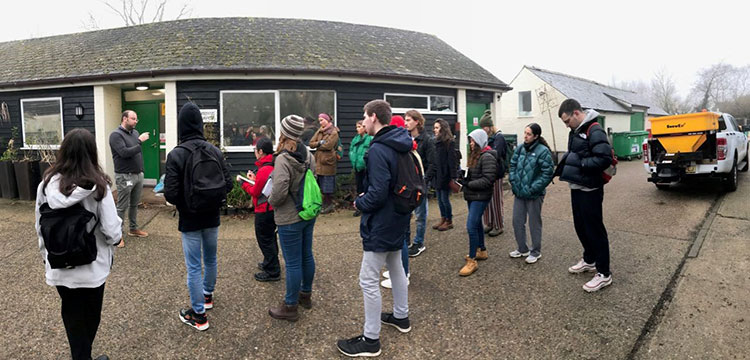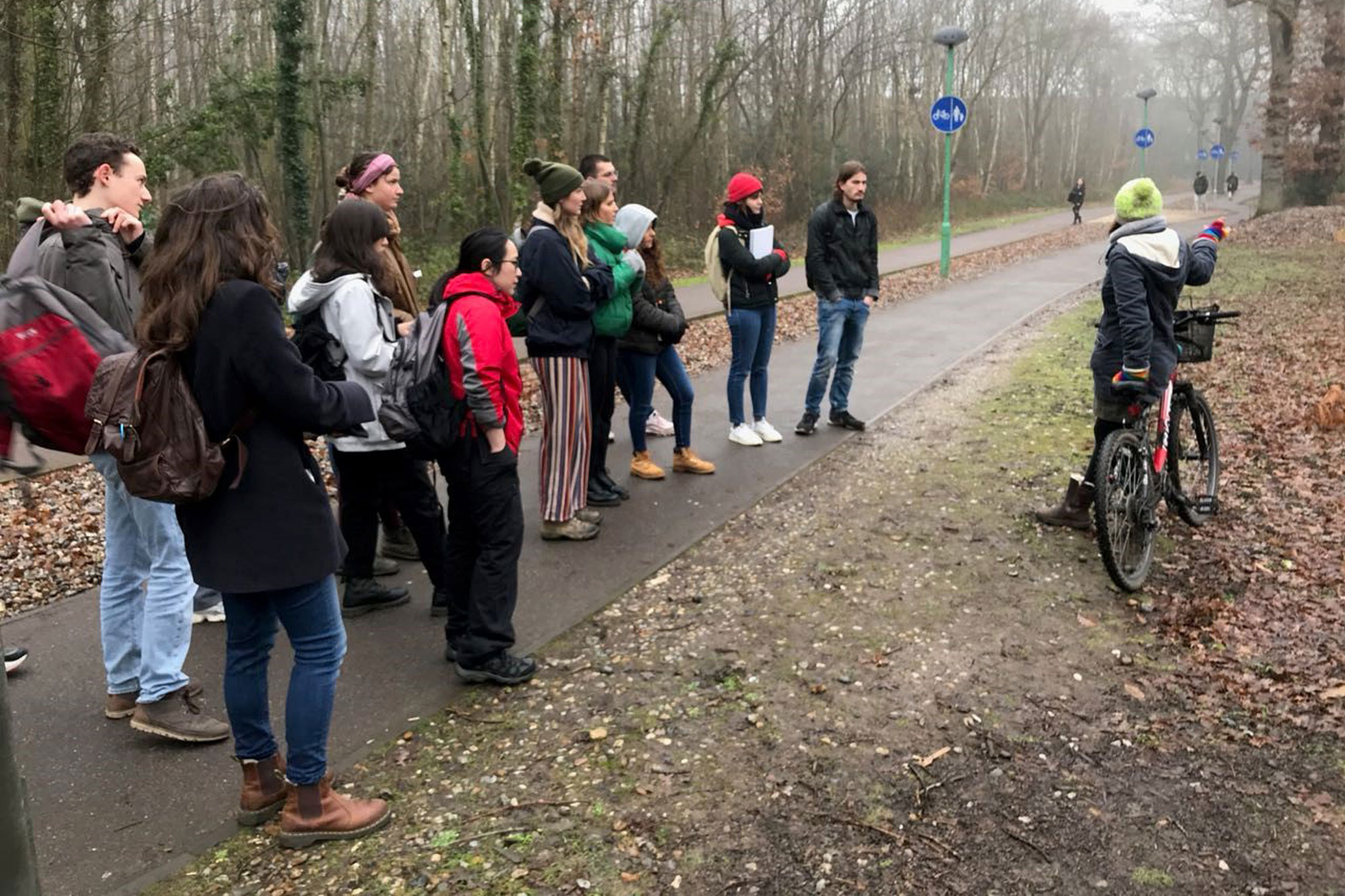Students registered on the interdisciplinary module The Anthropocene: Planetary Crises and the Age of Humans, spanning Anthropology, Conservation and Human Geography, were given a tour of the grounds of the University of Kent, meeting key stakeholders working on sustainability-related issues across the University and identifying needs and priorities for change and intervention as part of their projects.
Following the School’s declaration of a climate and environment emergency in September 2019, and its commitment to embed sustainability across the curriculum, the module is piloting the principle that the learning process at University can be embedded and contribute to the process of institutional learning and transformation towards a sustainable future.

For their module projects, students are self-organising into teams to work on specific problems and issues relating to sustainability at a School and University-level, liaising with University management and collecting data and evidence to inform specific interventions on matters relating to emissions, waste, food and mental health, among others. The module is serving as a pilot case-study for Living Labs, a new initiative within the University of Kent’s FutureProof programme, that uses the University as a research and teaching process through which to embed sustainability across teaching, research and operations.
Main image: Students with Catherine Morris (University of Kent Sustainability Team) discussing issues around the management of the University’s open spaces, which includes roughly 300 acres of campus, woodland and greenspace then another (roughly) 300 acres of farmland to the north.

